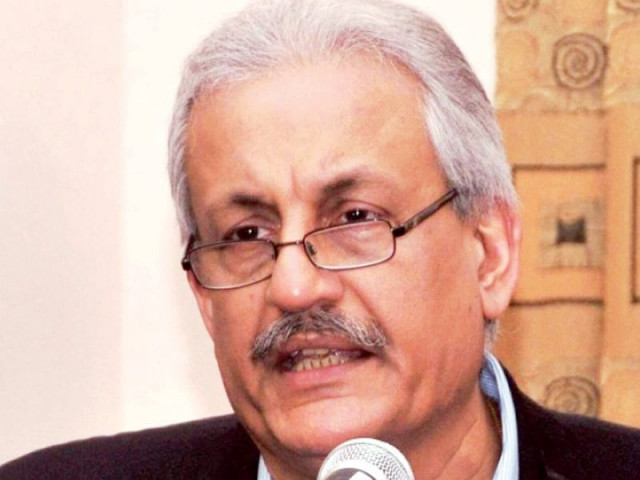The politics of ‘more provinces’
The politics of ‘more provinces’ is based on sound principles, but apparently dishonest intentions.

The MQM, trying to break out of the political straitjacket of Karachi and shake off renewed charges of wanting to create a secessionist Jinnahpur in Sindh, has pounced upon the devolutionary campaigns in south Punjab and Hazara to gain a foothold in national-level politics by championing more provinces. The reaction among south Punjabi Muslim Leaguers has been predictable: they want the ‘suba’ but not at the behest of the MQM which has yet to win a seat there. The MQM has also embraced the cause of Hazara Suba, forcing the ANP to use harsh words, including a reference to Jinnahpur, to remind everyone that the final decision will have to be taken at the provincial assembly where Pashtun nationalism will probably get a fillip at the cost of the sizable non-Pashtun population in Khyber-Pakhtunkhwa. Predictably the Hazara suba movement — led by an unlikely octogenarian — has hit the streets in Abbottabad and blocked traffic to remind everyone that it was still alive.
There was further confusion over the possible repackaging of the Federally Administered Tribal Areas (Fata) which the ANP has, at times, said should be amalgamated into Khyber-Pakhtunkhwa. The irony is that while the Eighteenth Amendment gives the right to create more provinces to the provincial assemblies — a kind of self-surgery of their jurisdictional strength — the creation of more provinces is considered a device of further devolution which is at the heart of the 18th Amendment.
The PML-N would not want a vivisection of Punjab but supports the Seraiki suba for fear of losing votes there. Yet it backs the Hazara suba. It says it is in favour of more provinces but not on linguistic-ethnic bases — which is the case in Seraiki and Hazara movements. The Seraiki province will be sizeable if it comes into being (comprising districts Mianwali, Bhakkar, Khushab, Jhang, Layyah and Muzaffargarh) with a total population close to 13 million. But the Hazara province (comprising Haripur, Abbottabad, Mansehra, Battagram, Kohistan) may be less viable because of its small population of 3.5 million. The Seraikis are equally distracted by a Bahawalpur suba movement (inclusive of Bahawalpur and Rahim Yar Khan, etc.) which, if made, would cover an area with a population of around seven million. In India, the number of provinces has grown from 22 to 28 in recent years and there is a movement afoot in Andhra Pradesh to slice a Telangana province from it. It is generally accepted that devolution through new provinces is good for the local population because it brings governance closer to them. But in India, too, the demand must be channelled through the state assembly and Telangana is not getting the kind of support the Seraiki suba idea has among the southern Punjabis in Pakistan. In any case, in India even if there are 100 provinces, the average unit will still hold the population comparable to a country’s in Europe.
There are further ironies to consider: the provinces have demanded more autonomy on the principle of devolution but none of them is willing to devolve further by allowing local governments. Furthermore, the Eighteenth Amendment still has to bite in the shape of more resources from a centre that remains impoverished. The politics of ‘more provinces’ is based on sound principles, but apparently dishonest intentions. The debate will create more unrealistic expectations than the country is able to meet given its current battered state.
Published in The Express Tribune, January 8th, 2012.















COMMENTS
Comments are moderated and generally will be posted if they are on-topic and not abusive.
For more information, please see our Comments FAQ